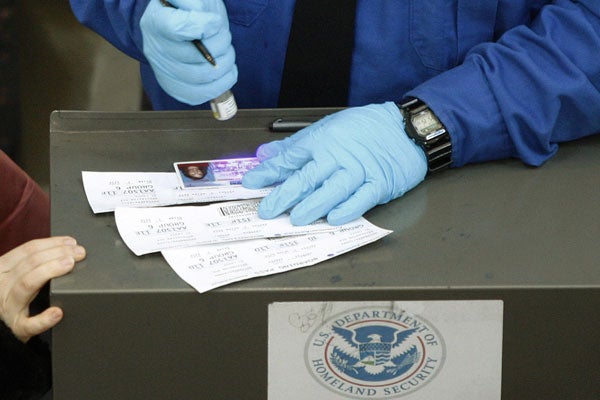Over the weekend, Representative Jim Sensenbrenner (R–WI) called out the Obama Administration for delaying the implementation of the REAL ID act. The act, which seeks to crack down on fraud and abuse of U.S. identification cards, has seen three extensions including the latest “temporary deferment.” Such delays are unacceptable as they leave the U.S. vulnerable to terrorism.
Passed in 2005, REAL ID is based on the recommendation of the 9/11 commission, who stated that “for terrorists, travel documents are as important as weapons.” Indeed, 18 of the 19 hijackers had 30 IDs between them, including six that were used to board planes on 9/11. To prevent this from happening again, REAL ID sets up voluntary standards for states to meet in areas such as facial image capture, document authenticity, data sharing, card security, and others.
Under REAL ID, states that fail to meet these standards will not have their IDs accepted for federal purposes, such as boarding a plane or entering a federal building. Instead, citizens of these states will need a federal ID, such as a passport, for these purposes.
By implementing these standards, terrorists will have a more difficult time obtaining IDs, thus limiting their travel and access to critical facilities. In addition, secure IDs help prevent fraud and crime such as identity theft.
Regrettably, the Department of Homeland Security (DHS) has “stonewalled implementation” of REAL ID, according to Sensenbrenner. Initially, Secretary Janet Napolitano outright opposed the act and actively worked for its repeal in 2009 and 2010. Since repeal efforts failed, the DHS has not fought REAL ID, but instead has avoided a leadership role. Failing to provide states appropriate guidance and missing deadline after deadline, the DHS is acting more like a sulking child who didn’t get what he wanted than the department of our government responsible for securing our homeland.
In the midst of this dysfunction remains a serious vulnerability to U.S. homeland security. Sensenbrenner is right to criticize the DHS and demand leadership—or at least legal compliance—from the Administration.
Sensenbrenner concludes with a story about “Ziad Jarrah, one of the terrorists responsible for the attack in Pennsylvania [who] was pulled over for speeding just two days before 9/11. He was able to hold multiple licenses and avoid detection. Instead of raising a red flag, all he got was a ticket.” As long as the DHS sits back, the U.S. remains vulnerable to this sort of threat.
The DHS needs to provide better guidance to states so that they can meet REAL ID standards. Now is the time for the DHS to begin enforcing REAL ID. In this case, sulking is not only childish, it is also dangerous.
